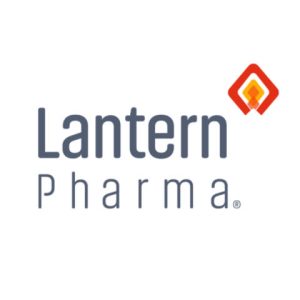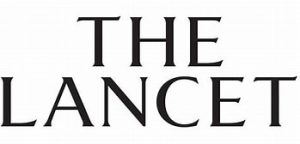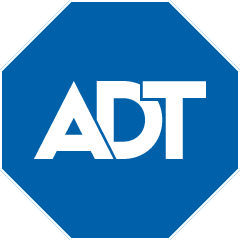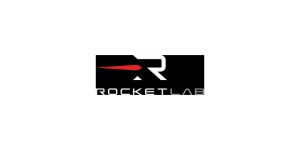Nasdaq, Fear Gauge, & Rates Pop Higher With FOMC Meeting In View – $AVGO $GOOG $LTRN $NTNX $RKLB $TSLA $VIX Rise!

In a day of mixed fortunes, the Nasdaq Composite stole the show with a dazzling 1.59% leap to 20,243.12, setting a new all-time high. The S&P 500 followed suit with a modest 0.38% gain, closing at 6,074.08. However, the Dow Jones Industrial Average bucked the trend, dipping 0.25% to 43,717.48, marking its 8th consecutive day of losses – the longest losing streak since 2018. This peculiar performance was driven by a “buy-the-dip” mentality following last week’s pullback, coinciding with the historically strong second half of December. Despite rising interest rates dampening initial enthusiasm, with the 10-year Treasury yield edging up to 4.41%, some mega-cap stocks provided crucial support to the broader market indices. The Russell 2000 also rose by .64%, while The CBOE Volatility Index (VIX) or the market’s fear gauge closed at $14.69, +6.37%.
Sector Winners and Losers
Communication Services, Consumer Discretionary, and Information Technology sectors led the charge, posting the largest gains among the four sectors in positive territory. On the flip side, Energy took the hardest hit, plummeting 2.2% amid sliding oil prices, which settled at $70.83 per barrel, down 0.7%. Health Care and Materials sectors also faced significant declines, dropping 1.3% and 1.0% respectively.
* Strong performers: Communication Services (+1.3%), Consumer Discretionary (+1.7%), Information Technology (+1.0%), Industrials
* Weak performers: Energy (-2.2%), Materials (-1.0%), Health Care (-1.3%)
Notable Stock Gains
Several individual stocks shone brightly on Monday, providing crucial support to the S&P 500 and Nasdaq indices. Broadcom (AVGO) led the pack with an impressive 11.2% surge, closing at $250.00. Tech giants Alphabet (GOOG) and Tesla (TSLA) also reached new 52-week highs, with gains of 3.5% and 6.1% respectively. These stellar performances helped offset the pressure from rising interest rates and contributed to the Nasdaq’s record-breaking close.
Upcoming Economic Events
The week ahead promises a flurry of market-moving events that could set the tone for Wall Street’s year-end performance. All eyes are on the Federal Reserve’s upcoming meeting, with a 95.4% probability of a 25 basis point rate cut on Wednesday, according to the CME FedWatch tool. Investors will also be digesting a smorgasbord of economic data, including:
* November Retail Sales and Industrial Production (Tuesday)
* FOMC decision (Wednesday)
* November Housing Starts and Existing Home Sales (later in the week)
* Personal Income and Spending reports, featuring the Fed’s preferred inflation gauge, the PCE Price Index
These reports will provide crucial insights into consumer behavior, industrial output, and inflationary pressures as the market navigates the final stretch of 2024[2][3].
Vista Partners Watchlist Highlights

Shares of Lantern Pharma (LTRN), an artificial intelligence (“AI”) company developing targeted and transformative cancer therapies using its proprietary RADR® AI and machine learning (“ML”) platform with multiple clinical stage drug program, closed at $3.56, +3.34% and up another +1.97% to $3.63 in the aftermarket.
On December 9, Lantern announced that the first patient has been enrolled and dosed in Taiwan for its Phase 2 HARMONIC™ clinical trial evaluating LP-300 in never-smoker patients with non-small cell lung cancer (NSCLC) who have progressed after receiving treatment with tyrosine kinase inhibitors (TKIs). The enrollment of the first patient in Taiwan extends the recent expansion of the HARMONIC™ trial into Asia, where there is a notably higher prevalence of never-smoker NSCLC patients compared to Western populations. Taiwan represents a particularly important region for the trial, as more than half of all new lung cancer diagnoses in Taiwan occur in people who are classified as never-smokers. Never-smokers in the context of lung cancer have been commonly defined, by the CDC and other health agencies, as people who have smoked less than 100 cigarettes in their lifetime. The scientific and clinical community is increasingly recognizing that lung cancers in nonsmokers and never-smokers represent a distinct disease entity with unique clinical, genomic, pathological, and biological characteristics. Lantern believes that this has particular importance for the Harmonic™ trial, as it underscores the need of targeted, precision therapy approaches for this unique patient population. Lung cancer in never-smokers constitutes one of the top 10 causes of cancer-related deaths globally, making it a crucial focus for therapeutic innovation.
On December 3, Lantern announced that the FDA has granted Fast Track Designation for investigational drug candidate, LP-184, for treatment of Triple Negative Breast Cancer (TNBC). This marks the second Fast Track Designation received for LP-184 in 2024, following its designation for Glioblastoma in October.
On November 26, Lantern and its wholly-owned subsidiary Starlight Therapeutics, focused exclusively on CNS and brain cancers, announced the presentation of new preclinical data and Phase 1b trial design for LP-184 (to be developed as STAR-001 for CNS indications) in glioblastoma at the Society for Neuro-Oncology (SNO) 2024 Annual Meeting in Houston, Texas. The poster presentation highlighted LP-184’s unique mechanism of action, brain penetrance properties, and potential enhanced therapeutic effect when combined with spironolactone in glioblastoma multiforme (GBM). LP-184 is currently under investigation in a Phase 1a dose-escalation safety study (NCT05933265) in adult patients with advanced solid tumors including GBM. “The data and trial design presented at SNO2024 further validate and progress LP-184’s potential as a promising new treatment option for glioblastoma patients,” said Panna Sharma, President and CEO of Lantern Pharma. “Through our subsidiary Starlight Therapeutics, we are positioned to advance LP-184 as STAR-001 specifically for brain cancers and CNS indications, where treatment options are limited and often ineffective. The combination with spironolactone represents an innovative approach, which has been developed with the aid of our AI platform RADR®, to potentially enhance therapeutic response in this devastating disease.”
On Nov. 19, Lantern announced that the first patient has been dosed – as part of the expansion cohort – in Japan for its Phase 2 HARMONIC™ clinical trial evaluating LP-300 in never-smoker patients with non-small cell lung cancer (NSCLC) who have progressed after receiving treatment with tyrosine kinase inhibitors (TKIs). The dosing of the first patient in Japan marks a significant expansion of the HARMONIC™ trial into Asia, where there is a notably higher prevalence of never-smoker NSCLC patients compared to Western populations. The trial is being conducted at five sites across Japan, including the National Cancer Center Japan under the leadership of Dr. Yasushi Goto, a renowned physician-researcher focused on lung cancer.
- Lantern is advancing three AI-guided precision-oncology drug candidates in active Phase 1 and Phase 2 clinical trials, while evaluating additional ADC-based preclinical molecules for development.
- Preliminary patient data and clinical readouts for the Phase 2 LP-300 Harmonic™ Trial showed an 86% clinical benefit rate in the initial 7 patient lead-in cohort, and additional patients continue to be enrolled in the US.
- The Harmonic™ Trial has been expanded to both Japan and Taiwan with an expected 10 sites in East Asia; 5 in each country where the population of never-smokers is 33 to 35 percent of new cases in NSCLC.
- Phase 1 clinical trials for both synthetic lethal drug candidates, LP-184 and LP-284, continue to advance with no dose-limiting toxicities observed in any of the patient cohorts enrolled and over 50 patients dosed to-date across both trials.
- LP-184, which will be developed as STAR-001 for CNS and other neuro-oncology indications, received Fast Track Designation in Glioblastoma (GBM) from the FDA.
- Patients with recurrent GBM have been enrolled in the LP-184 Phase 1a trial at 2 academic centers, including Johns Hopkins, and 1 community site; the data will help guide later stage clinical development planned to be sponsored by Starlight Therapeutics during early 2025.
- Biomarker analysis for PTGR1 expression using qPCR for the first 7 cohorts of patients enrolled in the Phase 1a LP-184 clinical trial has begun, and will help guide the advancement of PTGR1 as a key RNA biomarker that can guide patient response prediction.
- Three U.S. FDA Rare Pediatric Disease Designations were granted to LP-184 in three ultra rare children’s cancers.
- Three scientific publications in Q3 including: a peer-reviewed paper regarding the unique AI-powered module for ADC development as part of the RADR® platform; and findings presented at conferences regarding the ongoing development of Lantern’s synthetically-lethal drug candidates at the Immuno-Oncology Summit for LP-184 and The Society of Hematologic Oncology for LP-284.
- Approximately $28.1 million in cash, cash equivalents, and marketable securities as of September 30, 2024.
On Nov. 5, Starlight Therapeutics, a wholly-owned subsidiary of Lantern Pharmaceuticals, formed to develop transformative CNS cancer treatments with AI-powered innovation, announced the formation of a Scientific Advisory Board (“SAB”) to support the development of lead compound STAR-001. The inaugural SAB will work closely with Starlight’s management team to provide strategic guidance and critical expert insights into the development of STAR-001 in CNS and brain tumors for both children and adults. “The establishment of the SAB represents a significant advancement for Starlight, and we are honored to be joined by such accomplished scientific experts. We look forward to drawing upon the deep subject matter expertise of Drs. Berger, DeAngelis, Grossman and Laterra, to shape the development path of STAR-001,” said Dr. Marc Chamberlain, M.D., Starlight’s Chief Medical Officer. “We also extend congratulations to Drs. Berger and Grossman on being recipients of the prestigious Lifetime Achievement Award from the Society of Neuro-oncology. Congratulations!”
On Monday, October 28, Tribe Public featured Panna Sharma, Lantern’s President and CEO where he discussed in detail how big data and AI are being leveraged to advance the development of multiple indications for drug-candidates LP-184 and LP-284 during the CEO Prersentation and Q&A Event titled “Leveraging Artificial Intelligence to Develop Therapies for Brain and Childhood Cancers”. Lantern also discussed how their algorithm for blood-brain-barrier (BBB) penetrability played a critical role in supporting the development of LP-184 across multiple CNS cancer indications, including GBM. You may view the event video now at this link.
On October 15, Lantern Pharma announced that the FDA has granted Fast Track Designation for investigational drug candidate, LP-184, for treatment of Glioblastoma. LP-184 is currently in a Phase 1A clinical trial designed to evaluate the safety and tolerability of the synthetically lethal investigational drug candidate in a broad range of solid tumors, including Glioblastoma (GBM). LP-184 was optimized and advanced in part with Lantern’s AI platform, RADR®, to aid in the validation of mechanisms that could be exploited in the clinical setting to eradicate challenging cancers, and uncover insights in targeted patient populations. RADR® is Lantern’s AI platform for cancer therapy discovery, development and rescue with over 100 billion data points and aiding in the development of both Lantern’s portfolio and development initiatives with Lantern’s collaborators. Fast Track Designation is designed to expedite FDA review of important new drugs to treat serious conditions and fill an unmet medical need. Fast Track Designation for LP-184 (STAR-001) recognizes Glioblastoma (GBM) as a serious condition impacting more than 13,000 U.S. adults each year and approximately 300,000 globally. A phase 1b/2a clinical trial for recurrent GBM is targeted to start in late 2024/early 2025. LP-184, which will be developed as STAR-001 for CNS and other neuro-oncology indications by Starlight Therapeutics, a wholly owned subsidiary of Lantern Pharma, has the potential to be the first new drug for treating GBM in more than 20 years.
On September 23, Lantern announced that the company has been granted three rare pediatric disease designations (RPDD) by the FDA. Lantern was granted these rare pediatric disease designations in: malignant rhabdoid tumors (MRT), rhabdomyosarcoma (RMS), and hepatoblastoma. Rare pediatric diseases are defined by the FDA as serious or life-threatening conditions primarily affecting children under 18, with fewer than 200,000 cases in the U.S. A key benefit of obtaining a RPDD is the potential to receive a priority review voucher following FDA approval of a product with RPDD if the marketing application submitted for the product satisfies certain conditions, including approval prior to September 30, 2026 unless changed by legislation. These vouchers, often called “golden tickets,” can significantly expedite the review process for future NDAs or biologic license applications, reducing the standard review time from about ten months to six. Sponsors can either use these vouchers themselves or sell them to other companies. These vouchers, in the recent past, have commanded sales prices of approximately $100 million USD.

Modular Medical, Inc. (NASDAQ: MODD, $1.54, -3.14%), an insulin delivery system technology company preparing to launch a market expansion product with a more accessible, easier to prescribe, and easier to pay for and live with technology. Using its patented technologies, the company seeks to eliminate the tradeoff between complexity and efficacy, thereby making top quality insulin delivery both affordable and simple to learn. Their mission is to improve access to the highest standard of glycemic control for people with diabetes taking it beyond “superusers” and providing “diabetes care for the rest of us.” Modular Medical was founded by Paul DiPerna, a seasoned medical device professional and microfluidics engineer. Prior to founding Modular Medical, Mr. DiPerna was the founder (in 2005) of Tandem Diabetes and invented and designed its t:slim insulin pump. More information is available at https://modular-medical.com.
On November 21, Modular announced that it has priced an underwritten public offering (the “offering”) of 5,450,573 shares of its common stock. The offering was led by existing institutional investors, including Manchester Explorer, L.P., which is the largest shareholder of the Company and is managed by Jeb Besser, Modular Medical’s Chief Executive Officer. The shares of common stock are being sold at a price to the public of $1.50 per share of common stock, less underwriting discounts and commissions. The gross proceeds to the Company from the offering are expected to be approximately $8.2 million, before deducting underwriting discounts, commissions and estimated offering expenses payable by the Company. The Company intends to use the net proceeds from the offering to fund operations and for working capital and general corporate purposes, including capital expenditures. The offering is expected to close on or about November 25, 2024, subject to the satisfaction of customary closing conditions.
On November 11, Modular Medical, Inc.’s Chief Executive Officer, Jeb Besser delivered a presentation titled “Tailoring GLP-1 Weight Loss Treatments: Innovative Approaches To Personalized Dosing.” He was also available for a 5-10 minute Q&A session at the end of the presentation.
On Nov. 7 Modular Medical announced successful results from its pre-clinical GLP-1 proof of concept study. They highlighted the following: Study showed more potent weight loss and blood glucose control with the addition of a mealtime bolus of a rapid acting GLP-1 to basal delivery, Observed weight loss was 17% at 28 days, a 25% improvement over GLP-1 delivered as basal alone, & Findings suggest that pump delivery may be a viable approach to achieve GLP-1 weight and blood glucose benefits that are comparable with current treatment standards, either as initial treatment or for maintenance, while bringing personalized dosing flexibility. “With these encouraging results, we are now planning to take this concept of a synergistic basal-bolus GLP-1 combination into a human trial using our MODD1 device. We are considering both existing fast acting GLP-1s and other peptides for this trial, as we see this as a platform technology that could be used for more personalized titration for both non-responder or non-adherent patients experiencing GI and other issues with long acting GLP-1s, as well as for other specialty applications in metabolic therapies. This type of application is well suited for our MODD1 pump, given its quick training time, simple interface, high accuracy at low flow rates, reusable low-cost electronics, and a prefill-capable 3mL reservoir,” stated Jeb Besser, CEO of Modular Medical.
On September 18, Modular Medical announced the issuance of U.S. Divisional Patent Application No. 17/968,599. “The issuance of this patent and the associated claims represent a major step in our efforts to protect the intellectual property in the MODD1 pump platform,” stated Jeb Besser, CEO of Modular Medical. “Some of the key features of our novel, low-cost and accurate insulin delivery technology are now protected by this important issued U.S. patent, which we believe represents a significant new barrier to entry. Our eight families of patents around our pump are an important part of our strategic value and market positioning, and we look forward to announcing further issuances on our portfolio in the future.”
On Wednesday, September 4, Modular announced it has received U. S. Food and Drug Administration (“FDA”) clearance to market and sell its MODD1 pump in the United States. With its commercial manufacturing infrastructure substantially established, the Company anticipates the MODD1 should be available for sale in early 2025.

James (Jeb) Besser, CEO of Modular Medical (NASDAQ: MODD)
“For too long, the benefits of superior glycemic control achieved by insulin pumps have, due to cost and complexity, been restricted to only the most sophisticated, motivated and well-insured users. The goal of Modular Medical has always been to change this by making diabetes technology accessible and affordable to underserved communities. We seek to make the experience of going ‘on a pump’ simpler and less intimidating and to widen the base beyond the current pump users,” said Jeb Besser, CEO of Modular Medical.
 Shares of Indaptus Therapeutics, Inc. (Nasdaq: INDP) closed at $.96, -5.88% and is up 4.17% in the aftermarket. Indaptus is a company with the ability to harness both the body’s innate and adaptive immune responses, believes that they are uniquely positioned to revolutionize the treatment of cancer and certain infectious diseases.
Shares of Indaptus Therapeutics, Inc. (Nasdaq: INDP) closed at $.96, -5.88% and is up 4.17% in the aftermarket. Indaptus is a company with the ability to harness both the body’s innate and adaptive immune responses, believes that they are uniquely positioned to revolutionize the treatment of cancer and certain infectious diseases.
On Nov. 22, Indaptus announced that it has entered into securities purchase agreements with investors, including an officer of Indaptus, for the issuance and sale of an aggregate of 1,817,017 of its shares of common stock. In a concurrent private placement, Indaptus has also agreed to issue and sell unregistered warrants to purchase up to an aggregate of 1,817,017 of its shares of common stock. The combined effective purchase price for each share of common stock and associated warrants is $1.175. The warrants will have an exercise price of $1.05 per share, will be immediately exercisable upon issuance and have a term of five years from the date of issuance. The closing of the offering is expected to take place on or about November 25, 2024, subject to the satisfaction of customary closing conditions. Paulson Investment Company, LLC is acting as the exclusive placement agent in connection with the offering. The gross proceeds to Indaptus from the offering are expected to be approximately $2.135 million, before deducting the placement agent’s fees and other offering expenses payable by Indaptus. Indaptus intends to use the net proceeds from the offering to fund its research and development activities and for working capital and general corporate purposes.
On Nov. 11, Indaptus announced that Dr. Michael Newman, Founder and Chief Scientific Officer, has published his groundbreaking research in the peer-reviewed journal, Frontiers in Immunology. The article, titled “Invention and Characterization of a Systemically Administered, Attenuated and Killed Bacteria-Based Multiple Immune Receptor Agonist for Antitumor Immunotherapy,” presents the Company’s innovative approach to activating both the innate and adaptive sides of the immune system to treat cancer. The paper is being published as part of a Research Topic on The Vital Role of Innate Immunity in Cancer Immunotherapy. This publication describes the invention and pre-clinical characterization of the Decoy platform, including Decoy20, a novel clinical stage immunotherapy candidate. Decoy20 leverages attenuated, killed and stabilized bacteria to activate multiple immune pathways with a weekly pulse, aimed at creating a comprehensive immune response against tumors. By priming or activating both the innate and adaptive immune systems, Decoy20 has demonstrated the potential to enhance immune responses to effectively fight various types of cancer, including colorectal, pancreatic, hepatocellular cancers and lymphomas. Dr. Newman’s study highlights Decoy20’s potential advantages over traditional treatments, such as chemotherapy, as well as its potential to significantly enhance the efficacy of current, single-target immunotherapy, because it triggers a broad yet controlled activation of the immune system while reducing toxicity often seen with other cancer immunotherapies. Dr. Newman commented, “It is incredibly rewarding to have our work recognized in such a prestigious publication. I am honored to share years of scientific research with the broader scientific community, contributing a deeper understanding of our ‘pulse-prime’ approach to enhancing both innate and adaptive immune activation. We believe this methodology, represents a significant step toward more effective cancer immunotherapy.”
Key Highlights from the Research:
-
Multi-Pathway Immune Activation: Unlike traditional immunotherapies that focus on a single immune pathway, Decoy20 engages multiple immune receptors, including Toll-like, NOD-like, and STING receptors, to initiate a broader and more durable immune response.
-
Encouraging Preclinical Data: Decoy20 has produced efficacy in preclinical studies across a variety of tumor types and in combination with four different classes of existing drugs, demonstrating both innate and adaptive immune activation that led to tumor regression and immunological memory.
-
Reduced Toxicity Profile: By using a rapidly cleared, bacteria-based delivery package and significantly lowering but leaving a small amount of immune activating LPS-endotoxin activity, Decoy20 is designed to produce a broad, but transient or pulsed activation of innate and adaptive immune pathways, minimizing toxicity and enabling safe systemic administration – a longstanding challenge with novel cancer immunotherapies.
On Nov. 7, Indaptus Therapeutics announced compelling safety, pharmacokinetics, and biomarker data on its lead compound, Decoy20, at the Society for Immunotherapy of Cancer (SITC) 2024 annual meeting. The data derive from two cohorts (13 patients) of Decoy20 single administration and one cohort (6 patients) of Decoy20 weekly administration in the Company’s ongoing Phase 1 clinical trial. The SITC conference is being held November 6-10, 2024 in Houston, TX. The data presented demonstrated that Decoy20 administered intravenously once weekly mainly showed side effects that were classified as mild or moderate and transient in duration. Further, pharmacokinetic analysis confirmed that Decoy20 quickly disappeared from the bloodstream after administration, supporting the Company’s “pulse” approach. One patient in the trial who has squamous cell carcinoma of the head and neck (SCCHN) with high levels of PD-L1, which is a protein that is associated with tumor response to certain immunotherapies, had “stable disease” — meaning the cancer had not progressed or worsened — at the time of their first imaging scan. “We continue to be encouraged by the safety profile of Decoy20 when administered weekly,” said Dr. Roger Waltzman, Chief Medical Officer. “In addition, we see a broad innate and adaptive immune response. Based upon pre-clinical data, we expect Decoy20 combined with a PD-1 inhibitor to work together effectively to control tumors.”
On October 22, Indaptus announced a clinical supply agreement with BeiGene (BGNE). Building on Indaptus’ preclinical observation that Decoy20, when combined with a PD-1 inhibitor, induced complete cancer regressions and immunological memory in animal models, Indaptus plans to advance human clinical evaluation of the combination of BeiGene’s anti-PD-1 antibody, tislelizumab, with Indaptus’ Decoy20, a novel treatment designed to induce a broad immune response to fight cancer. Indaptus’ Decoy20 is being studied for its potential to treat a variety of cancers, including liver, colon, and pancreatic. PD-1 inhibitors are considered key agents in modern immunotherapy and have produced impressive response rates in some patients. In preclinical studies, Decoy20, when used in combination with a PD-1 inhibitor and an oral non-steroidal anti-inflammatory agent, demonstrated tumor eradication rates of 80-100%. Indaptus hopes to find a treatment combination that similarly improves outcomes in humans.
“PD-1 inhibitors have proven to be meaningful in treating multiple types of cancer. We are optimistic that we can improve outcomes by broadly and safely stimulating the immune system in a way that could enhance overall effectiveness of currently approved cancer treatments,” said Jeffrey Meckler, CEO of Indaptus Therapeutics. “This agreement with BeiGene marks a significant step forward in the search for curative cancer treatments for some of the most challenging cancers. Additionally, we view this as a significant milestone for Indaptus.”
As part of the agreement, BeiGene will provide Indaptus with access to its PD-1 inhibitor as well as technical expertise in order to accelerate the first clinical trial combining the two investigational drugs. Decoy20 utilizes Indaptus’ unique “Pulse-Prime” approach, which induces a strong and broad boost to the immune system but clears rapidly with only transient and tolerable side effects.
“Decoy20’s ability to synergize with a variety of approved therapeutic modalities, including checkpoint therapy, makes it a promising partner for several novel combination approaches,” said Dr. Michael Newman, Founder and Chief Scientific Officer at Indaptus. “This trial could reshape the checkpoint therapy landscape, as it will be the first time a short but broadly acting agent such as Decoy20, utilizing our innovative Pulse-Prime approach, will be tested in combination with a PD-1 inhibitor.”
On October 15, Indaptus Therapeutics, Inc. (Nasdaq: INDP) provided an update regarding key clinical advancements in its Phase 1 trial of lead drug candidate Decoy20. The Safety Review Committee examined weekly administration data at the lower Decoy20 dose and cleared unrestricted enrollment of patients at this dose. The safety profile observed to date remains aligned with Decoy20’s expected mechanism of action. The most clinically relevant treatment-related adverse events include Grade 2 Infusion Related Reaction and Grade 2 Hypotension, both of transient duration.

Dr. Roger Waltzman, Indaptus Chief Medical Officer
“Unrestricted enrollment of patients at the lower Decoy20 dose will enable us to gather more safety and efficacy data, which is crucial for assessing the full potential of Decoy20. The data will guide how we initiate combination therapy next year, a critical phase in advancing Decoy20,” said Dr. Roger Waltzman, Indaptus Chief Medical Officer.

Eupraxia Pharmaceuticals (EPRX, $3.4381, -.06%) is a clinical-stage biotechnology company leveraging its proprietary DiffuSphere™ technology to optimize drug delivery for applications with significant unmet need. The Company strives to provide improved patient benefit and has developed technology designed to deliver targeted, long-lasting activity with fewer side effects. DiffuSphere™, a proprietary, polymer-based micro-sphere technology, is designed to facilitate targeted drug delivery, with extended duration of effect, and offers multiple, highly tuneable pharmacokinetic (PK) profiles. This investigational technology can be engineered for use with multiple active pharmaceutical ingredients and delivery methods.
On Nov. 20, Eupraxia unveiled new pharmacokinetic (“PK”) data from its Phase 2a Eosinophilic Esophagitis (“EoE”) program. Management believes these data underscore the unique capabilities of Eupraxia’s proprietary DiffuSphere™ platform technology, which aims to provide precise, localized, safe, and effective long-lasting drug delivery. Most conventional drugs release in a pattern characterized by steep peaks and rapid declines in drug concentration, where peaks often lead to negative side effects, and troughs result in reduced efficacy. In contrast, DiffuSphere™ is a unique microsphere that is designed to enable precise drug release into target tissues with a flat, stable, and long-lasting profile, minimizing potential adverse events associated with high-dose systemic delivery. What sets DiffuSphere™ apart is its composition: a pure drug crystal encased in a microns-thick polymer shell. Eupraxia’s proprietary technology uses this polymer to precisely control a drug’s release, ensuring high drug concentrations in the target tissues while minimizing exposure to the rest of the body. This innovative approach has been observed in Eupraxia’s clinical programs, demonstrating precision, tolerability, and extended duration of delivering fluticasone propionate (“FP”) directly to the intended tissues for EoE and knee osteoarthritis (“OA”) patients.
On Nov. 15., Eupraxia Pharmaceuticals Inc.’s Chief Executive Officer, James Helliwell. M, delivered a presentation titled “Eosinophilic Esophagitis: The Emerging Digestive Disorder Frequently Misdiagnosed” and was available for a Q&A session at the end of the presentation. The video can be viewed below:
On Nov. 12, Eupraxia announced additional positive clinical data from its RESOLVE Phase 1b/2a trial, which is evaluating the safety and efficacy of EP-104GI as a treatment for eosinophilic esophagitis (“EoE”). EoE is an inflammatory-mediated disease in which white blood cells migrate into and become trapped in the esophagus, creating pain and difficulty with swallowing food. According to market research from Clearview Healthcare Partners, EoE affects more than 450,000 people in the United States and has been identified by the American Gastroenterological Association as rapidly increasing in both incidence and prevalence. Impacts from both symptoms and interventions frequently lead to mental health issues, compounding the disease burden of EoE for both the healthcare system and the individual. Eupraxia highlighted the following:
- One of three patients in Cohort 5 achieved complete histological remission at 12 weeks.
- Consistent improvement in patient-reported outcomes with six of six evaluable patients in the fourth and fifth cohorts experiencing a reduction in symptom (SDI1) scores at 12 weeks.
- At 24 weeks, the fourth cohort experienced the largest average reduction in SDI scores of all cohorts to date.
- The fifth cohort continued to show improved patient outcomes with the greatest percentage change in histology (EoEHSS2) scores of any cohort to date.
- Both the mean reduction in Peak Eosinophil Counts (PEC3)at four biopsy sites and the percent change in histology (EoEHSS2) scores showed a clear dose response across Cohorts 3 to 5, with Cohort 5 showing the greatest response. No serious adverse events reported in any of the five cohorts to date.
- Cohort 6 is now fully enrolled and dosed, with 12-week data anticipated in Q1 2025.
- On September 11, 2024, the Company announced additional positive clinical data from its RESOLVE Phase 1b/2a trial which is evaluating the safety and efficacy of EP-104GI as a treatment for eosinophilic esophagitis (“EoE”).
- Presented RESOLVE clinical trial data at the Controlled Release Society 2024 Annual Meeting and Expo in Italy in July, and at the 20th International Symposium on Digestive Endoscopy World Congress for Esophageal Diseases in Scotland in September.
- Subsequent to quarter end, on October 2, 2024, the Company announced the appointment of Dr. Amanda Malone as the Chief Operating and Scientific Officer of the Company. In addition, the Company announced the appointment of Dr. Rahul Sarugaser as Executive Vice President of Corporate Development.
- Subsequent to quarter end, on October 15, 2024, the Company announced that Phase 2b data from its SPRINGBOARD trial evaluating EP-104IAR for the treatment of knee osteoarthritis was published in leading peer reviewed medical journal The Lancet Rheumatology.
- Subsequent to quarter end, on October 31, 2024, the Company announced the closing of a non-brokered private placement of C$44.5 million, the appointment of Mr. Joseph Freedman to its Board of Directors and the termination of its new C$12 million convertible debt facility.
On Oct. 31 Eupraxia announced that it has completed a non-brokered private placement of 8,905,638 Series 1 Preferred shares of the Company (the “Preferred Shares”), at a price of C$5.00 per Preferred Share for aggregate gross proceeds of C$44,528,190, by way of a non-brokered private placement (the “Private Placement”). The Company intends to use the net proceeds from the Private Placement towards the funding of clinical trials for EP104GI, initiating research programs for new candidates and general corporate and working capital purposes of the Company and its affiliates. In connection with the closing of the Private Placement, the Company has appointed Mr. Joseph Freedman to its board of directors. Mr. Freedman is a private equity investor and corporate director with more than 25 years industry experience including, most recently, 18 years at Brookfield Asset Management, one of the world’s leading private equity and alternative asset management firms. Over his career at Brookfield, Mr. Freedman has held a number of positions, including Vice Chair of Private Equity, General Counsel and the Partner responsible for M&A transaction execution, fund formation and fund operations. Prior to joining Brookfield, he was a lawyer in the corporate finance group at a Toronto law firm, specializing in private equity transactions and public company mergers and acquisitions. Now retired from Brookfield, Mr. Freedman is a director of several private and public companies and non-profit organizations including the Centre for Aging and Brain Health Innovation (co-chair), Bridgemarq Real Estate Services (TSX:BRE) and Total Containment Inc. Mr. Freedman holds a joint MBA/LL.B from the Schulich School of Business at York University and Osgoode Hall Law School in Toronto.

On October 15, Eupraxia announced that Lancet Rheumatology, a leading independent, peer-reviewed journal committed to sharing progressive content relevant to rheumatology specialists worldwide, recently published Eupraxia’s Phase 2 data from its SPRINGBOARD trial evaluating EP-104IAR for the treatment of knee osteoarthritis. Publication of Eupraxia’s Phase 2b data in Lancet Rheumatology, a distinguished and respected journal, raises the profile of EP-104IAR. As outlined in Lancet Rheumatology, Eupraxia’s EP-104IAR imparts clinically significant and durable pain relief, while also having minimal changes in glucose and cortisol, along with stable fluticasone proportionate concentrations in plasma. The U.S. Centers for Disease Control and Prevention estimates that knee osteoarthritis affects more than 30 million people in the U.S. alone. You may read the Lancet Publication regarding Eupraxia at this link.

Shares of ADT Inc. (ADT), a leading provider of monitored security and automation solutions for residential and small business customers in the United States and Canada, closed at $7.16, -5.56%. On Oct, 28, ADT announced the pricing of the previously announced secondary public offering of 56,000,000 shares of the Company’s common stock held by certain entities managed by affiliates of Apollo Global Management, Inc. (the “Selling Stockholders”). The offering is expected to close on October 30, 2024, subject to satisfaction of customary conditions. The underwriters will have a 30-day option to purchase up to an additional 8,400,000 shares of common stock from the Selling Stockholders. The Company is not selling any shares and will not receive any proceeds from the offering. In addition, ADT has authorized the concurrent purchase from the underwriters of 16,000,000 shares of common stock as part of the secondary public offering at a price per share equal to the price per share to be paid by the underwriters to the Selling Stockholders (the “Share Repurchase”), subject to the completion of the offering. The Share Repurchase is part of the Company’s existing $350 million share repurchase program. The underwriters will not receive any underwriting fees for the shares being repurchased by the Company. Last week, ADT reported results for the third quarter of 2024 that beat the street’s estimates and highlighting the following: Continued strong financial results, cash generation, and leverage reduction, Revenue up 5% versus prior year period, GAAP income from continuing operations up 7%; Adjusted EBITDA up 6%, Record-high recurring monthly revenue; solid customer retention, & On track to achieve full year 2024 guidance metrics.

Rocket Lab USA, Inc (Nasdaq: RKLB, $25.90, +6.06% and is now up +461.82% over the last year), a leading launch provider and space systems company, announced (Dec. 9) that it successfully launched a suborbital mission in November to test hypersonic technology for the Department of Defense. This mission provided hypersonic test launch capabilities under the Multi-Service Advanced Capability Hypersonics Test Bed (MACH-TB) project, which aims to increase hypersonic flight testing for the United States in support of technology maturation. The project was awarded by Naval Surface Warfare Center (NSWC) Crane through the Strategic and Spectrum Missions Advanced Resilient Trusted Systems (S2MARTS) Other Transaction Authority (OTA) vehicle on behalf of the U.S. Department of Defense Test Resource Management Center (TRMC). George Rumford, Director of the TRMC, states: “Leveraging commercial launch services allows our Nation to affordably test components early and frequently, accelerating hypersonic development.”

Nutanix, Inc. (Nasdaq: NTNX, $66.29, +.36%and up +43.11% over the last year), a leader in hybrid multicloud computing, announced(Dec. 11) the pricing of $750 million aggregate principal amount of 0.50% convertible senior notes due 2029 (the “notes”) in a private placement (the “offering”) to persons reasonably believed to be qualified institutional buyers pursuant to Rule 144A under the Securities Act of 1933, as amended (the “Securities Act”). Nutanix has granted the initial purchasers of the notes an option to purchase up to an additional $112.5 million aggregate principal amount of the notes within a 13-day period from, and including, the initial issuance date of the notes. The sale of the notes to the initial purchasers is expected to settle on December 16, 2024, subject to satisfaction of customary closing conditions.
Quote of the Day
Videos
Post View Count : 501














